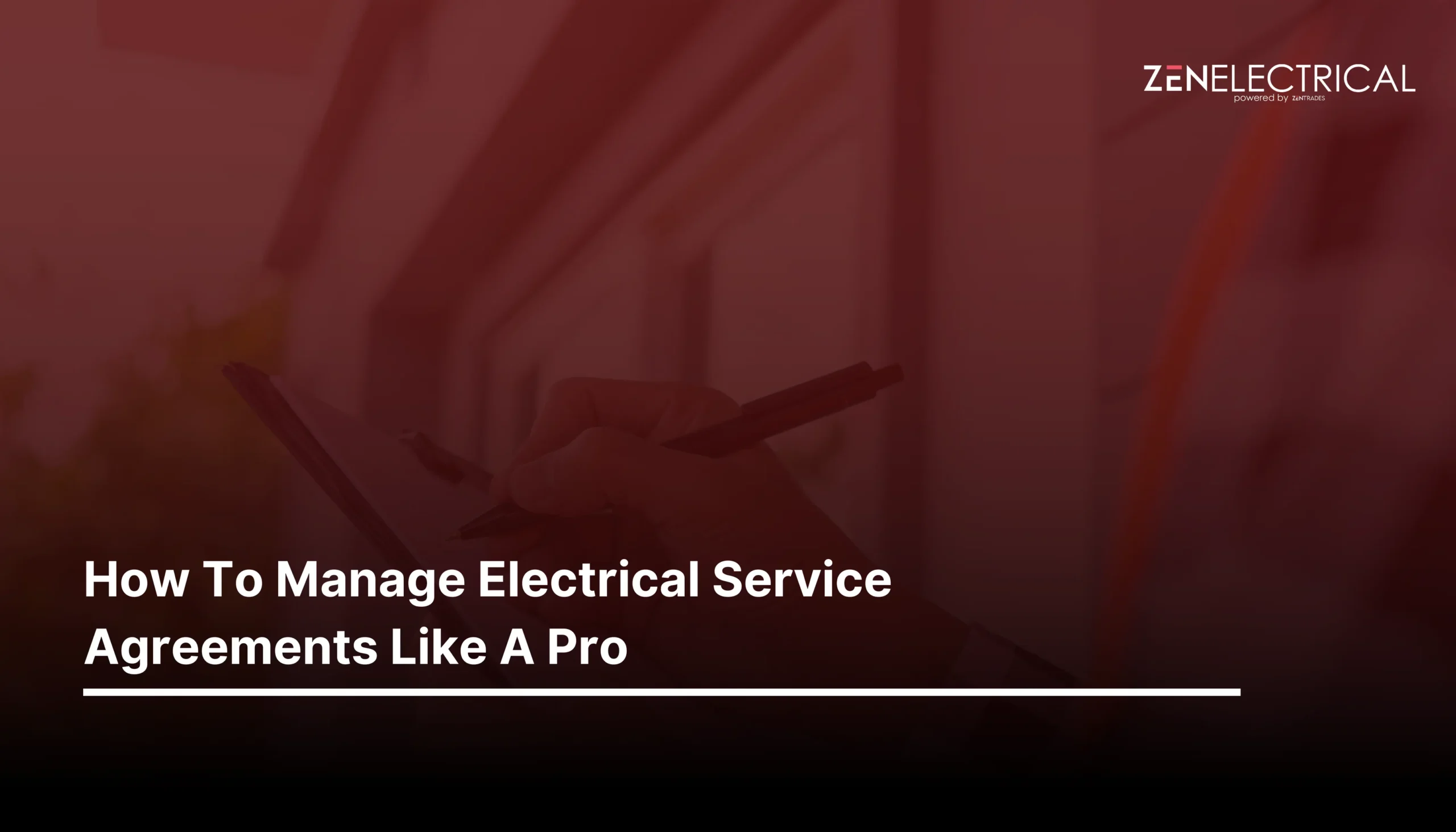
- Colorado expects a 21% growth in electrician jobs by 2032.
- You’ll need 8,000 hours of OJT & 288 hours of education to qualify for the journeyman license.
- The journeyman exam costs $178 & requires a 70% passing score.
- You have to enroll in union (IBEW) or non-union (IEC) apprenticeships to start your career.
- Colorado offers reciprocity with 14 states through NERA, easing interstate licensing.
If you are thinking of starting a career as an electrician or launching an electrical contracting business in Colorado, you are entering a trade that is booming. In 2025, Colorado’s electrical construction and renewable energy sectors are surging, and licensed electricians have access to bigger projects and job opportunities.
Colorado is projected to see a 21% increase in demand for electricians by 2032, outpacing the national average. The state is doing an aggressive investment in infrastructure, smart homes, solar power energy, and high-tech commercial developments, which means electrical expertise is more valuable than ever. But if you are rewiring residential electrical systems in Boulder, installing EV charging stations in Denver, or managing large-scale industrial jobs in Colorado Springs, you will need an electrician license issued by the Colorado State Electrical Board to get paid and stay compliant.
Most of the time, obtaining a license in Colorado can be overwhelming as it requires careful planning, education, and training. Colorado is one of the few states with a statewide electrical licensing system, meaning the Colorado State Electrical Board under DORA (Colorado Department of Regulatory Agencies) issues and regulates licenses. The steps include completing an approved apprenticeship program, passing a state exam, and applying for licensure.
In this guide, we will explain every step, from training and exam details to costs, salaries, and reciprocity.
Table of Contents
What Are The Different Types Of Electrical Licenses In Colorado?
Colorado law defines several license classifications for electrical work, and each type corresponds to the electrician’s training and scope of work. The main types are Master Electrician, Journeyman Electrician, Residential Wireman, and Electrical Contractor registration. Here is a more detailed description of each of these licenses:
Master Electrician/Master Wireman License
A master electrician is the highest-level electrician license. You can design, install, and supervise all types of electrical work. To qualify for the master electrician license, you need either an electrical engineering degree plus one year’s experience after graduation, or completion of an approved electrician trade school and four years (8,000 hours) of approved electrical experience, or one additional year (about 2,000 hours) of electrical experience beyond the journeyman level.
Journeyman Electrician/Journeyman Wireman License
The journeyman electrician license allows you to install and maintain electrical systems in commercial or industrial settings independently under the supervision of a master electrician or a licensed electrical contractor. You must complete a four-year apprenticeship of a minimum of 8,000 hours of on-the-job training and at least 288 hours of classroom education that often covers the current National Electrical Code (NEC), electrical theory, safety, etc.
Residential Wireman License
A residential wireman is a limited license for wiring single-family and multi-family dwellings up to 4 units. It requires two years of hands-on experience or residential electrical training. You can only perform electrical work on residential dwellings, not on commercial or industrial jobs.
Independent Electrical Contractor License
Businesses doing electrical work must register as Electrical Contractors with the state. You must employ a licensed Master Electrician who takes responsibility for all projects. The contractor must maintain proper insurance and file an acknowledgement of responsibility from the supervising Master.
These license classes correspond to state statutes and regulations. For example, the Colorado Revised Statutes explicitly set the training and experience required for journeymen and masters, and all these electrician licenses must be renewed every three years.
What Are The Colorado Electrical Licensing Requirements?
To qualify for an electrician license, you must be at least 18 years old with a high school diploma or GED equivalent. You also need proof of identity and to be physically able to do the work, like climb a ladder, lift equipment, etc.
You must also start as a registered electrical apprentice and complete an apprenticeship program. At minimum, Colorado requires 8,000 hours of on-the-job electrical work plus 288 hours of classroom education. Alternatively, you can choose to get a 2-year degree at an electrical technology school and add 6000 hours of supervised work.
You must get a passing score of 70% to pass the Colorado Journeyman Wireman exam. This journeyman examination is an open-book exam based on the current National Electrical Code and Colorado regulations and is administered by PSI Testing Centers.
Colorado’s licensing requirements are codified in state law. For example, the journeyman wireman license requires at least 8,000 hours of experience plus 288 hours of education, and the master electrician license similarly requires at least one additional year of experience beyond journeyman or accredited university credit.
How To Get An Electrical License In Colorado?
Step 1: Finish High School or GED
You need to meet the basic requirements before you start your electrical career. For that, you must be at least 18 years old and have a high school diploma. Take basic math and shop classes if possible.
Step 2: Register Yourself As An Electrician Apprentice
Colorado requires you to officially register your apprenticeship. The apprenticeship program will register you with the Colorado State Electrical Board, which is done through the DORA Online Services portal. The registration fee is around $30.
Step 3: Join An Apprenticeship Program and Complete On-the-Job Training
As mentioned above, you must enroll in a recognized apprenticeship through a union (IBEW) or non-union (IEC, ABC) program. There are unions like IBEW Local 68 (Denver JATC), Local 111 (Colorado Springs), and Local 728 (Boulder/Pueblo) that run four-year programs. There are non-union options and community colleges like the IEC Rocky Mountain training or trade school programs. You have to go through drug screening and pass the aptitude test.
After getting into the program, you have to work full-time under a licensed electrician or contractor and accumulate at least 8,000 hours of practical work experience. During this time, you will learn wiring, safety, equipment installation, and code compliance on real jobs. Additionally, you need to complete 288 hours of related classroom instruction. Many apprenticeship programs include this schooling, or you can just attend technical college evening courses. The topics usually include National Electrical Code (NEC), general electrical theory, OSHA safety, and calculations.
Step 4: Apply For And Pass The Journeyman Examination
Once you have the required hours, submit your application to take the Journeyman Wireman exam. You have to include your work affidavits and pay the $100 application and $78 exam fees. PSI will then schedule your exam date.
The exam typically covers wiring, grounding, codes, circuits, and other core topics, and you need to aim for 70% or higher in order to pass it. After passing the exam, you will obtain your license after you send proof of passage, completed training logs, and the application fee.
Step 5: Gain Experience As A Journeyman And Complete Master Requirements
Begin leading projects under a master electrician’s supervision after you step up to journeyman status. There are many journeymen who later pursue the Master Electrician license. You need to have an engineering degree plus 2,000 hours of work, or a trade diploma plus 8,000 hours, or 2,000 hours of supervisory experience. Once you are eligible, you need to pass the Master Electrician exam by scoring at least 70%.
Step 6: Obtain The Contractor License
If you want to start an electrical contracting business or run your own company, you must register as an Electrical Contractor. You need a licensed Master Electrician on staff who signs off on an “Acknowledgement of Responsibility”, plus proof of workers’ compensation insurance and unemployment insurance filings. The contractor license fee is $150, with a $120 renewal every three years.
How Long Is An Electrician School In Colorado?
It typically takes about 4 to 5 years to become a journeyman in Colorado, combining on-the-job training and classroom learning. By law, the minimum on-the-job time is 8,000 hours. The fastest path is around 4 years if you work full-time and attend school concurrently. The only way to reduce that is by obtaining prior credit. For example, a two-year electrical degree counts for 2,000 hours, so you then need 6,000 hours of work.
Colorado’s Electrical Training Schools and Programs
Colorado has robust electrician training programs through unions, trade groups, and schools. Here are the most common routes for many aspiring electricians:
Union Apprenticeships (IBEW/NECA JATCs)
The largest programs are the Joint Apprenticeship and Training Committees associated with the International Brotherhood of Electrical Workers (IBEW) and the National Electrical Contractors Association (NECA). For example, the Denver Area JATC (Local 68/CEC) and the Colorado Springs JATC (Local 111/CEC) run 4-year apprenticeships. These combine paid on-the-job work with regular classroom sessions for NEC and trade instruction. The union programs typically require you to be at least 18 years old, pass a basic aptitude test, and have a high school diploma.
IEC Rocky Mountain (Independent Electrical Contractors)
The IEC Rocky Mountain Chapter and the Construction Industry Training Council of Colorado offer a non-union apprenticeship program. Apprentices work for IEC-affiliated contractors and attend classes at night. Similar to union apprenticeships, this is a 4-year program that leads you to journeyman licensure.
Trade Schools And Community Colleges
There are several technical schools and community colleges in Colorado that offer electrical training certificates or associate degrees that can accelerate licensure. For example, Emily Griffith Technical College (Denver), Red Rocks Community College (Lakewood), Front Range Community College, and Pikes Peak Community College (Colorado Springs) all have electrical programs.
Electrical Technical Institutes
There are also private electrical schools like the Rocky Mountain Electrical Training Institute (RMETI) in Denver that provide evening courses specifically to help apprentices earn the 2888-hour school requirement. They allow students to study in blocks of time while working full-time.
You should always choose a program that fits your needs. Union apprenticeships often have a highly structured curriculum and recruitment cycle, while non-union programs might have more flexible entry. But all accredited apprenticeships are registered with the state, so your hours will count.
The Colorado Electrical Licensing Exam
After meeting the experience and training requirements, you must pass the state exam. The journeyman and master electrician exams in Colorado are administered by PSI Services. Here is a more detailed breakdown of the details:
Exam | Number of questions | Time | Passing Score | Topic |
Journeyman Wireman | 90 | 4 hours | 70% | The exam generally tests knowledge in general electrical principles, circuit calculations, wiring methods, overcurrent protection, grounding and bonding, conduit and boxes, special occupancies, special equipment like motors, transformers, etc, and safety. |
Master Electrician | 90 | 4 hours | 70% | The Master Electrician Exam has a similar format to the journeyman one, but has advanced subjects like multiple motor control, complex branch circuits, and project planning. |
Residential Wireman | 90 | 4 hours | 70% | The questions are more focused on dwelling-specific wiring scenarios, services, and appliances. |
Let’s go through a more detailed description of the core areas of the exam:
Grounding and Bonding: Most questions involve the proper grounding of panels, circuits, and equipment.
Service Equipment: The questions are based on service conductors, panels, feeders, and bonding at the service entrance.
Circuit Conductors & Overcurrent Protection: You must know the ampacity tables, wire types (NM cable, THHN, etc.), and breaker sizing rules.
Raceways and Boxes: Five questions are based on using conduit and selecting the correct box fill for conductors.
Special Occupancies & Equipment: Wiring rules for kitchens, bathrooms, HVAC motors, generators, and other special cases.
Motors and Transformers: Correctly sizing overcurrent devices for motors and transformer connections.
Calculations: Mainly electrical math problems on voltage drop, circuit loading, and NEC calculations.
What Is The Cost Of Colorado Electrician Licenses?
The key costs involved in obtaining and maintaining Colorado electrician licenses depend on the exam fee, application fee, tuition, and apprenticeship wages.
To take the Journeyman exam or the Master exam, Colorado charges an application fee and an exam fee. As of 2025, the combined fee is about $178 ($100 application fee + $78 exam fee). After passing the exam, you have to pay a license issuance fee of around $100, which varies by license type. For businesses, obtaining an Electrical Contractor license is $150 with renewal at $120 every three years.
If you attend a technical college or a private school, you have to pay for the tuition. In-state community college electrician programs in Colorado can cost roughly $4,000 per year.
Additionally, Colorado requires a small amount of continuing education (usually 24 hours of approved courses for master’s and contractors and 12 hours for journeyman) for license renewal every 3 years. The renewal cost varies between $65 and $75, depending on the license type.
What Electrical Work Requires A Permit In Colorado?
The permitting rules can vary by city or county but generally, any new electrical installation or significant alteration requires a permit For example, installing a new circuit, replacing or upgrading a service panel, adding outlets, installing wiring in new construction, adding a sub-panel, re-wiring a portion of a building, or installing any new electrical equipment all normally eed permits.
According to the Douglas County Building Division, an electrical permit is required whenever someone wants to install, enlarge, alter, or repair, convert, or replace all or part of electrical systems. This includes not only power and lighting, but also fire alarms, security systems, and low-voltage communications.
Do Small Projects Need Permits?
In general, any significant project needs a permit. However, minor tasks like replacing a switch or outlet on an existing circuit might not require a permit in some areas, but many jurisdictions require permits even for those in order to ensure safety. So, you should always check the local rules.
In Colorado, almost all electrical work requires a permit. If you are a licensed electrician, you will generally be responsible for obtaining permits for your job. If you are a homeowner, you can pull permits for your own dwelling, but for commercial or rental properties, the electrical contractor must do it.
Can You Do Electrical Work Without A License In Colorado?
Colorado law does allow very limited electrical work without a state license. Under Colo. Rev. Stat. §12-23-111, here are the exemptions:
Homeowners May Perform Electrical Work On Their Own Home
If you are a homeowner, you may perform electrical work on your own residence without a license as long as the work is inspected. This means if you own and live in your house, you do not need a license to require or repair it yourself, though you still must obtain permits and pass inspection for new work. However, if you sell or rent that property, the work must meet all code and licensing requirements.
Maintenance And Repair
Even on non-owner properties, if you are a regular employee of a company that owns or rents the building, you can perform maintenance or repair on existing electrical systems without being licensed, provided the company’s work has been inspected and conforms to code.
Utility And Cable Workers
The employees of electrical utilities, rural co-ops, or franchised cable TV companies installing equipment for power or communication services do not need a state electrician license when performing their specialized duties.
Minor Electrical Work
Small tasks like replacing light bulbs, plugs, or fixtures typically do not require a license.
What States Accept a Colorado Electrical License?
If you hold a Colorado electrical license and want to work in another state or vice versa, you need to know about reciprocity agreements. Colorado is a member of the National Electrical Reciprocal Alliance (NERA), which coordinates reciprocal licensing for journeyman electricians across many states. The Colorado State Electrical Board grants reciprocity for journeyman licenses from other NERA member states, which means that if you hold a valid journeyman license from certain states, Colorado will let you become licensed here without retaking the exam. As of 2025, the states that are recognized by Colorado for journeyman reciprocity include:
Alaska
Arkansas
Idaho
Iowa
Minnesota
Montana
Nebraska
New Hampshire
New Mexico
North Dakota
Oklahoma
South Dakota
Utah
Wyoming
Master electrician reciprocity is more restrictive; Colorado typically does not issue master licenses by reciprocity except via endorsement by examination. Also, many other states will honor a Colorado license for reciprocity under similar criteria, but you should verify the rules of each state anyway.
How Much Does a Licensed Electrician Make In Colorado?
The mean annual wage for electricians in Colorado is in the low $60,000s per year as of 2025. But, pay always varies by experience, license level, and location.
Entry-level apprentices may start in the low $20 per hour, while journeymen often earn above $30 per hour, and master electricians can make $35-$40 per hour.
According to the Bureau of Labor Statistics, the Denver-Aurora-Lakewood, CO area employs about 9,670 electricians with a mean wage of $39.65 per hour. The median wage in Denver is about $29.50/ hour for a typical journeyman.
Overall, Colorado’s wages for electricians are 5%-10% higher than the national average. Here is a summary of the wages of electricians based on the significant locations:
Location | Mean Hourly Wage | Mean Annual Wage |
Denver-Aurora-Lakewood MSA | $30.65 | $63,750 |
Colorado Springs MSA | $28.83 | $59,970 |
Fort Collins-Loveland MSA | $29.77 | $61,910 |
Colorado | $30 | $62,000 |
Are Electricians In Demand In Colorado?
Yes. Electricians are in high demand across Colorado. The state’s economy, with ongoing construction, renewable energy projects, and infrastructure growth, drives the need for qualified electrical professionals. According to U.S. Department of Labor projections, Colorado is expected to add about 3,070 new electrician jobs between 2022 and 2032, a growth of 17 %. This is actually above the national projected growth of 11% for the same period. Colorado had about 18,060 electricians employed in 2022, and this is projected to reach over 21,000 by 2032.
How To Apply And Renew Your Colorado Electrician License
Once you have passed the exam and been notified of your eligibility, you apply to DORA for the actual license. Applications are submitted through the DORA Online Services portal. You have to upload proof of your apprenticeship hours, exam scores, and pay the license fee. After the initial licensure, Colorado requires renewal every three years. Renewal is done online and requires a renewal fee (typically around $65–$75 for journeyman) and a modest amount of continuing education credits:
Journeyman renewal usually requires around 12 hours of approved continuing education (CE) every three years (with half on electrical code), while Master/Contractor renewal typically requires about 24 CE hours (12 on code).
If you fail to renew on time, you have to reinstate by paying an extra late fee. Even active licensed contractors must continue their education and insurance coverage to maintain their license.
Powering Up Your Electrical Career In Colorado
In 2025, skilled trades are evolving with smart homes, EV chargers, solar integration, and high-performance commercial systems, and only licensed electricians are trusted to get the work done. So, if you’re serious about turning your technical skills into a long-term, high-income career or business, then the journey starts with knowledge, planning, and a state-recognized license in hand.
Need help managing jobs, invoicing clients, or streamlining inspections once you’re licensed? ZenElectrical provides digital solutions that are built specifically for electrical contractors, like scheduling, dispatching, invoicing, estimates, deficiency reporting, and much more, that help you scale like a pro.
Schedule a free demo with ZenElectrical today because it’s time to stop playing small and get ahead in Colorado!
Get Insights Delivered Straight
To Your Inbox!
Related Reading
Why Your Field Software Management Software Needs QuickBooks Integration
ZenTrades Why Your Field Service Management Software Needs QuickBooks Integration Read More Request Demo...
Read MoreZenTrades How To Manage Electrical Service Agreements Like...
Read MoreZenTrades The Best 5 Jobber Alternatives In 2023...
Read More


